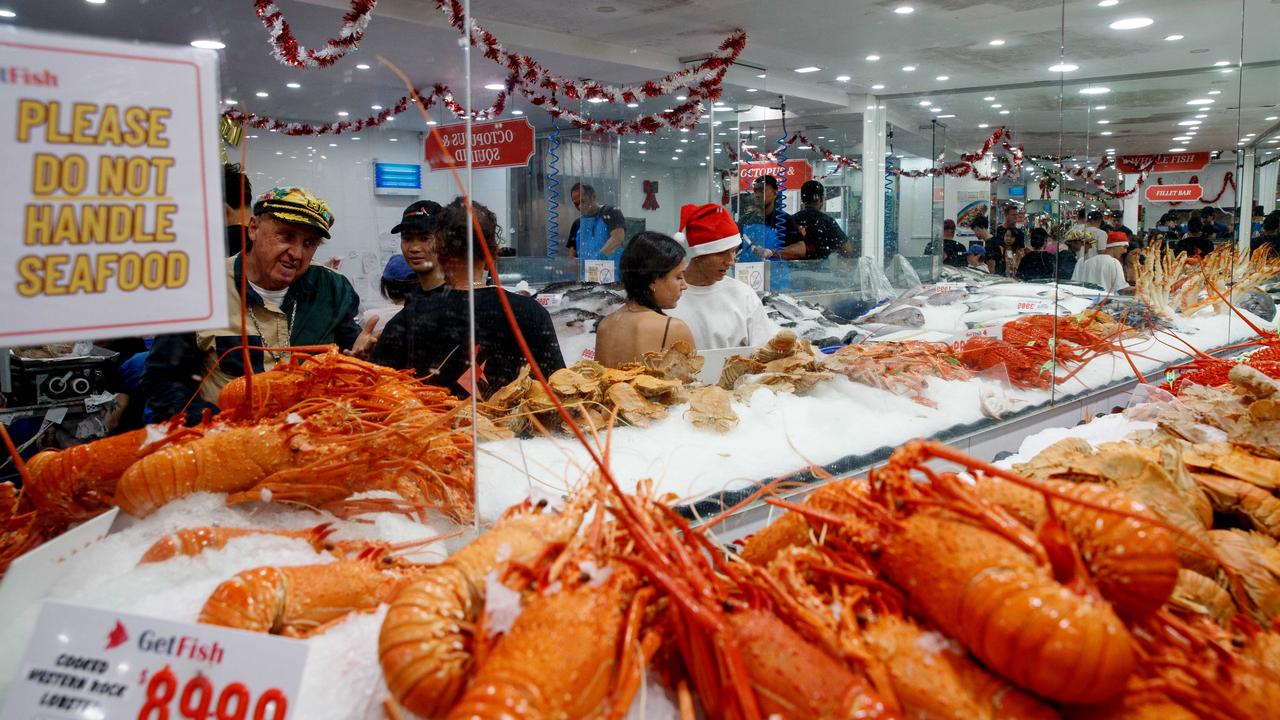Americans hoard toilet paper for no reason
Supermarket shelves are being stripped bare across the US amid fears a port strike could cripple supply chains - and there’s one product everyone’s racing to buy.
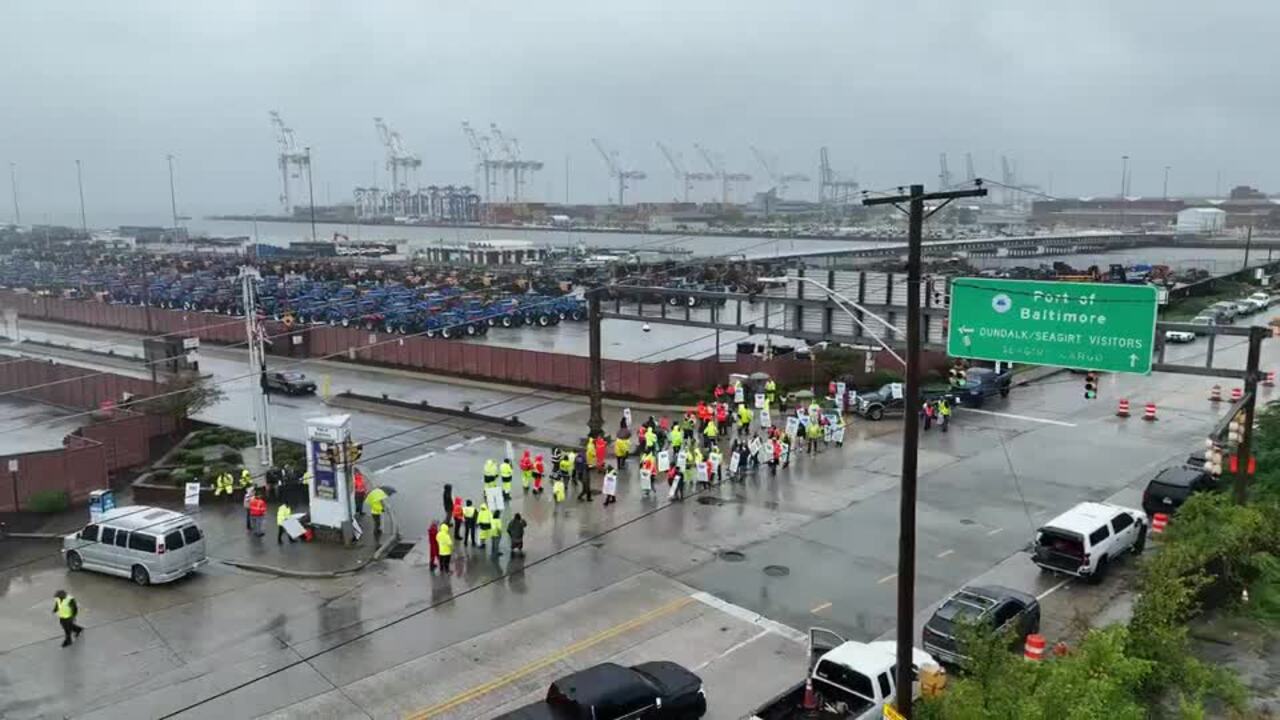
Retail
Don't miss out on the headlines from Retail. Followed categories will be added to My News.
Supermarket shelves are being stripped bare across America amid fears a massive port strike could cripple supply chains across the nation and cause misery for millions.
Nervous shoppers have begun panic buying items including toilet paper and paper towels, with warnings that perishable items like food and alcohol could remain in limbo for weeks.
Ironically, toilet paper is one item that is likely to be unaffected by the strike given the product is almost exclusively made in American factories.
“It turns out 90 per cent of the toilet paper we use in the US is produced in the US,” Andy Borchers, a Professor of Management at Lipscomb University, told WZTV.
“The remaining 10 per cent comes from Canada and Mexico. So there is no impact on the dock worker strike on toilet paper.”
The panic buying has started. pic.twitter.com/Qo7Ge5ji6t
— Possum Reviews (@ReviewsPossum) October 2, 2024
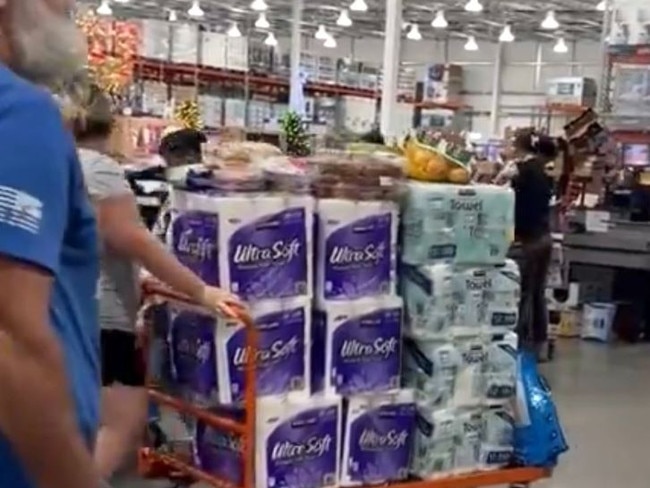
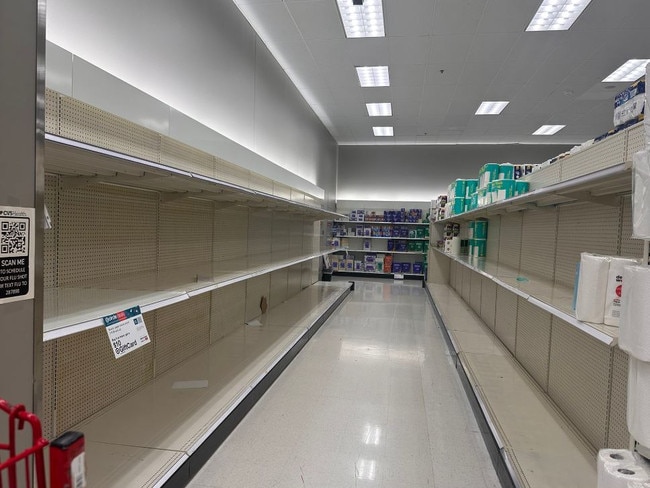
Despite assurances toilet paper won’t get caught up in the strike, it appeared to be the number one priority for many American shoppers on Thursday.
Texas woman Shayna Turbovsky said she was convinced to stock up on supplies by a colleague.
“I don’t know how bad it’s going to get, but the south east just got smacked by a hurricane and now the supply chain is going to be impacted through this strike...I would rather be overprepared than scared,” she posted on X.
She justified her decision to spend $280 loading up on more than 30 pounds of meat, bananas, toilet paper and other essentials.
“Once people are scared, once this country feels the fear of anything, we will all feel the PTSD of the pandemic, so immediately people think of toilet paper, paper towels, food supply,” she told USA Today.
“People feel the fear and want to overconsume and buy everything they can.”
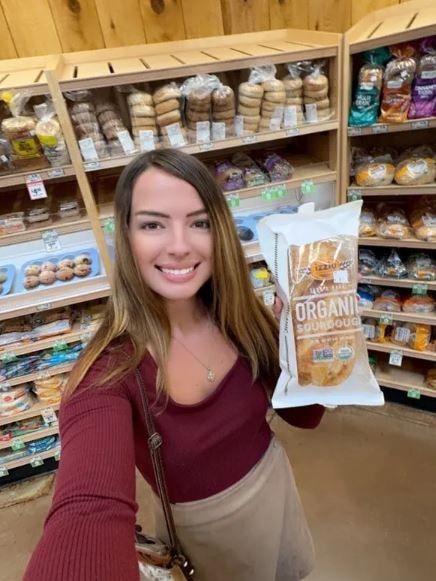
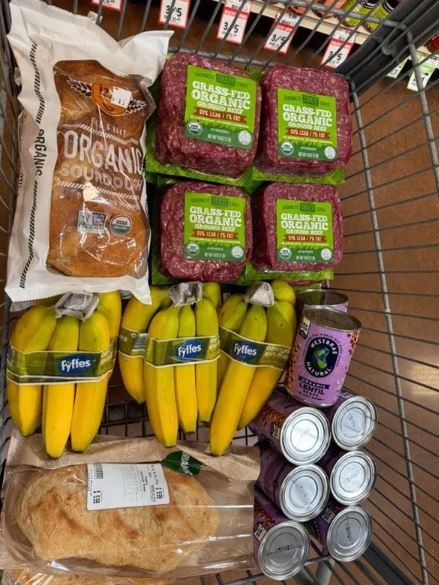
Others took to social media to complain about their local supermarkets already being out of toilet paper.
“Seems people are losing their minds over toilet paper again. Local Walmart has been gutted. Nary a roll to be found,” wrote one user.
“They cleaned out the toilet paper at my local Walmart in Virginia.” wrote another.
A New Jersey woman said her local Target and Walmart stores were both sold out of toilet paper.
Georgia Republican Rep Marjorie Taylor Greene was swiftly fact-checked on X after blaming the toilet paper shortage on America’s “dependence on foreign countries.”
“Toilet paper would not be affected by a strike at ports that began just nine hours before this post because the vast majority of toilet paper sold in the US is manufactured in the US,” the community note beneath her post read.
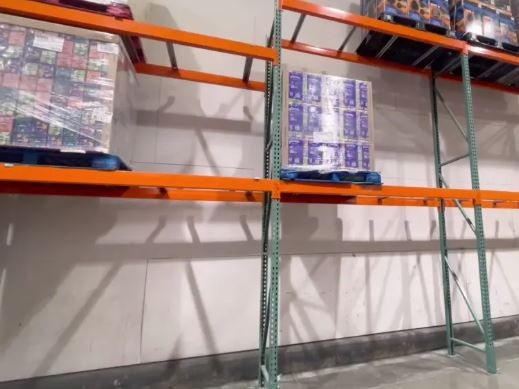
Strike will cost American economy $4.5 billion a day
Some 45,000 members of the International Longshoremen’s Association (ILA) walked off the job on Tuesday – picketing at ports across the east coast as they fight for higher wages and protections from automation to be included in their new contract.
Long lines of container ships have been pictured outside of some 40 major US ports from Maine to Texas, with supply chains of everything from car parts to bananas in jeopardy.
JPMorgan has estimated the strike could cost the US economy up to $4.5 billion a day.
Port employees want a $5-an-hour pay increase for each of the six years of the next contract - a raise of 77 per cent in total.
Starting pay for dockworkers under the old contract was $20 an hour, rising to $24.75 after two years, $31.90 after three, and topping out at $39 at the six-year mark.
Longshoremen have also slammed the increased automation of their jobs, with cranes and driverless trucks taking over much of their backbreaking labor.
Union president Harold Daggett was unapologetic for the chaos that comes just over a month before Americans go to the polls in November’s presidential election.
“If we have to be out here a month or two months, this world will collapse,” he told CNN in an interview Tuesday morning.
If walkouts continue for more than a few weeks, millions of Americans could be hit by higher prices and delays for household goods ahead of the busy holiday season.
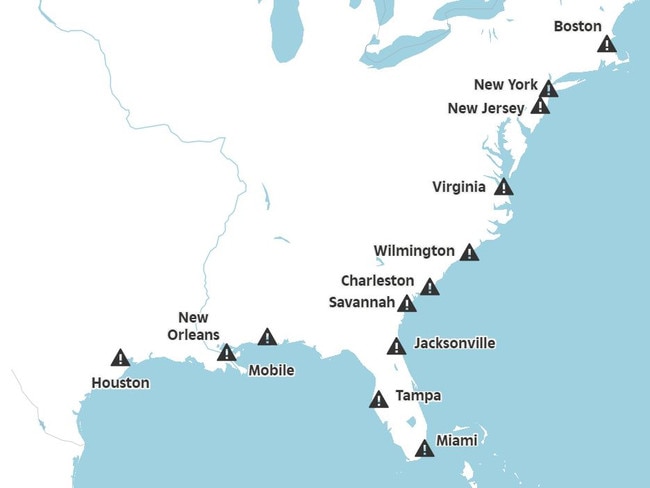
Biden refuses to intervene, urges parties to come to agreement
Nearly 300 trade associations have urged President Joe Biden to use federal authority to end the strikes.
President Biden, who has the power under federal law to order the dockworkers back to work, has said he will not intervene.
Instead, he urged the union and the group representing port managers to hammer out a new collective bargaining agreement.
Even if the strike is resolved, the backlog in American supply chains could take weeks to resolve.
One solution put forward is for container ships in the Atlantic to use West Coast ports unaffected by the strikes via the Panama Canal since longshoremen on the Pacific are represented by a different union.
West Coast ports are already seeing an increase in traffic compared to usual, and this option would add thousands of kilometres onto journeys, take weeks to complete, and hike up costs.
First dockworkers’ strike in almost 50 years
This is the first major dockworkers’ strike since 1977, which lasted a total of 44 days.
That strike also came after major technological changes had transformed the industry, including containerisation which made it cheaper and easier to move freight.
The strike was eventually resolved thanks to pay rises and the continuation of guaranteed annual income, although this was later got rid of as part of a new contract in 1986.
In the 1950s, more than 55,000 longshore workers were employed by the New York-New Jersey ports.
Today, that number is just 4,000, thanks in large part to increased automation.
But experts have warned that because of increased globalisation and higher imports of everyday items, this dock strike could have far more devastating impacts than 1977’s.
“Americans at the time were consuming way more US-made vehicles, US-made clothing, US-made appliances, toys, recreational equipment,” Will Brucher, labor historian at Rutgers University told northjersey.com.
“The port strike in 1977 would have affected exports more than now,” he went on. “There was a better balance between an import-export based economy.”
Controversial strike boss’ lavish lifestyle
ILA President Daggett has come under criticism from some for his lavish lifestyle.
The New York City native and dad-of-three earns $900,000 a year and reportedly owns a 76-foot yacht called the Obsession.
He also drives a Bentley and lives in a $1.7 million home in Sparta, New Jersey.
The USMX on Monday gave the union an increased pay offer of more than 50 per cent over the next six years or a yearly raise of $3 an hour.
Experts have warned that items most at risk include bananas, as the US imports almost 100% of its supply.
More than half of American banana imports come through ports currently affected by the strike, according to the American Farm Bureau Federation.
Other items most at risk include cherries, cocoa, sugar, imported wine, beer, and hard liquor.
The USMX has said it is still open to negotiations.
“Reaching an agreement will require negotiating,” a spokesperson said on Wednesday.
“We cannot agree to preconditions to return to bargaining, but we remain committed to bargaining in good faith to address the ILA’s demands and USMX’s concerns.”
OCTOBER SURPRISE?
The strike is being seen as an “October Surprise” ahead of the election - a sudden twist that could shape the final weeks of the campaign.
President Biden told reporters on Sunday that he wouldn’t intervene in the strike.
“It’s collective bargaining, and I don’t believe in Taft-Hartley,” he said.
- With The US Sun
Originally published as Americans hoard toilet paper for no reason





